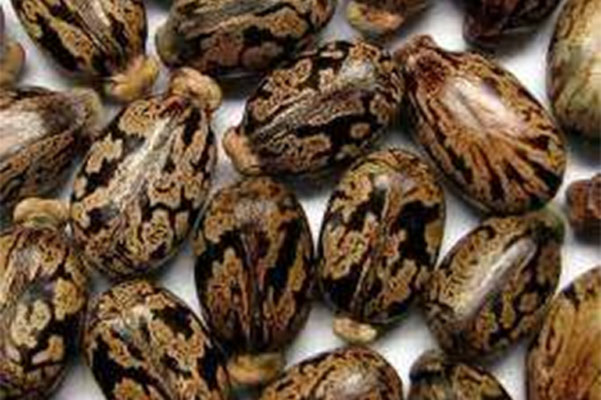
Despite a slow start, the castor bean “revolution” is now in full swing in the country with some farmers now having the crop in their fields.
By Style Reporter

What started as a vision by Life Brand Agricultural services chief operations officer Israel Kembo is now reality with many farmers growing the crop.
For farmers like Morgan Murandu in ward 24, Zvimba district, the growing of castor beans is set to change their economic fortunes. The castor crop which is harvested thrice a year can earn farmers around $25 000 annually from one hectare.
Murandu, who has taken up a hectare under the seed propagation programme, says he has a healthy irrigated crop which was planted two months ago.
“I am happy to say that this crop has been one which I was initially sceptical about, but I am encourgaed by the outlook,” said Murandu.
“We have adhered to all the instructions that we have been given by LifeBrand Agric Services and the results have been pleasing.”
The story of castor beans, which constitutes a trillion dollar industry, is one which has transformed the livelihoods of farmers in countries such as Brazil, India as well as Nigeria, among others where it is being grown.
- Chamisa under fire over US$120K donation
- Mavhunga puts DeMbare into Chibuku quarterfinals
- Pension funds bet on Cabora Bassa oilfields
- Councils defy govt fire tender directive
Keep Reading
The climatic conditions of countries mainly growing castor beans are characterised by hot weather, meaning that areas such as Mudzi, Mount Darwin, Gokwe and Binga, where propagation sites have been set up, will benefit from growing of the crop. However, this does not disqualify the rest of the country in the growing of the crop.
“There has been a lot of enthusiasm by Zimbabwean farmers to take up the growing of castor beans,” said Israel Kembo, a specialist in castor beangrowing.
Kembo says while the uptake of the programme has been increasing steadily, there is need for financial institutions to chip in and assist.
The castor plant has many uses such as in the production of body lotions and deodorants. In food and beverages, castor oil is used for packaging, flavouring and as viscosity additives. castor oil is also used as an aircraft lubricant, jet engine lubricant and hydraulic fluid. In the fuel industry, castor oil has been determined as the best biofuel available in terms of per capita yield in the market and it is mainly used as a fuel additive.
“The sceptics have also been asking about the castor oil markets. The current rate of production is not sufficient to meet the demand for castor oil presently in the global market,” said Kembo.
“This situation creates a very lucrative opportunity for the new players to enter the castor oil market. That is where we come in as Zimbabwe and with the zeal of our farmers, availability of land as well as a government that supports agricultural pursuits, we will not go wrong.
“Right now we are grappling with fuel shortages. The castor plant stalks can be used for biodiesel. If we grow the targeted 150 000 hectares which is also set to transform a projected 80 000 households, then we are definitely going to see the country’s fuel import bill taking a nose-dive.”
The projected dry spell may come as a blessing in disguise for Kembo as castor plants require 500mm of water annually. So far, despite not having financial backing, the firm has managed to have around 23 000 hectares of castor beans planted countrywide with further support expected to increase the pace at which the project is moving forward.
Vice-president Kembo Mohadi, the guest of honour at the recently-held castor bean symposium, underscored the need for Zimbabwean farmers to take up such programmes. The spinoffs from the growing of the castor beans for Zimbabwe will create numerous opportunities such as the opening of new industries that will value-add the crop.
The castor crop which can be harvested for up to five years also leaves farmers smiling all the way to the bank as LifeBrand Agric Services will also buy the stalks, leaves as well as the roots when the farmers clear their fields.
In many countries, the castor crop has been described as a miracle plant and as it stands, it is certainly set to make a major imprint on the country’s agriculture sector.











